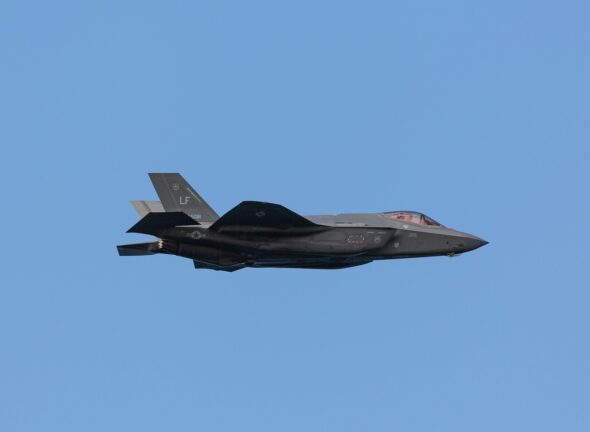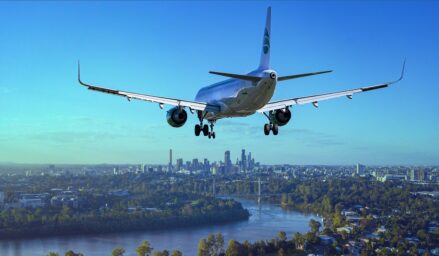European enthusiasm for expensive American fighter jets has cooled visibly. Recently, Spain’s government grounded its plans to place a massive order of the F-35s, while the governments of Portugal and Switzerland are considering scrapping their existing orders.
Spain’s decision to bypass the F-35 for homegrown alternatives marks a strategic rupture. Madrid will replace its ageing AV-8B Harriers and F-18s, slated for retirement in the 2030s, with additional Eurofighters and the Franco-German-Spanish Future Combat Air System (FCAS).
“The Spanish option consists of the current Eurofighter and the FCAS in the future,” the defence ministry said. Madrid thus confirmed a pivot toward European—as opposed to Transatlantic—defence collaboration.
The move defies Mr Trump’s public rebuke of Spain’s refusal to meet his demand for NATO members to spend five per cent of GDP on defence. That position left Madrid isolated; other countries (e.g., Britain) went in the opposite direction, expanding their F-35 fleets.
You might be interested
Sovereignty, or sectarianism?
Spain’s choice carries risks. The Eurofighter, a 4.5th-generation jet assembled near Madrid, lacks the F-35’s stealth capabilities and sensor fusion. While Spain’s 2023 order for 25 more Eurofighters (totalling 115) sustains local jobs, the FCAS—a sixth-gen system integrating drones and advanced software—remains mired in corporate disputes between Airbus, Dassault, and Indra. If developed, FCAS won’t debut before 2040.
Critics argue the gap leaves Spain vulnerable. “We are witnessing the prioritising of sectarianism over…security,” Financial Times quoted Cuca Gamarra of the opposition People’s party.
Political calculus underpins Madrid’s defiance. Michael Walsh, a US foreign policy expert, notes Spain feared Mr Trump would weaponise an F-35 deal. “The Trump administration could use [it] as leverage to push…alignment with US interests,” he said. For Prime Minister Pedro Sánchez, embracing European projects signals sovereignty—and insulates him from charges of capitulating to Washington’s demands.
Hopp Schwiiz!
Switzerland faces a sharper crisis. Bern’s planned purchase of 36 F-35As—a third of Lockheed’s 2024 deliveries—is unravelling after Mr Trump imposed 39 per cent tariffs on Swiss exports, the highest rate among developed nations. The $9.1bn (€7.82bn) deal, already contentious due to cost overruns, now faces parliamentary revolt.
“A country which throws rocks at us in trade shouldn’t get a present,” declared Green lawmaker Balthasar Glättli, who submitted a proposal to scrap the order. Social Democrat co-president Cedric Wermuth demands a new referendum to “stop the procurement,” while Liberal Hans-Peter Portmann urged Bern to “swallow potential losses” and explore European alternatives, Bloomberg reports.
A country which throws rocks at us in trade shouldn’t get a present. — Swiss parliamentarian Balthasar Glättli
Lockheed Martin xould be left reeling from the backlash. The firm took $1.6bn in charges this year as the Pentagon slashed F-35 orders. European defiance compounds its woes. Switzerland’s retreat would align with its broader security shift: Bern now aims to procure 30 per cent of arms from Europe and pursue EU collaboration, despite historical neutrality.
A widening rift
Switzerland’s President Karin Keller-Sutter’s made an emergency trip to Washington this week, meeting Secretary of State Marco Rubio. Their encounter produced little beyond a bland statement about “strengthening bilateral defence cooperation”.
For both nations, the planned purchases of the F-35 have both military and political dimension. Spain asserts EU defence autonomy; Switzerland may retaliate against punitive trade measures. Until this week, Portugal was the only Nato country mulling alternatives to the Lockheed flagship aircraft, citing “predictability of our partners” as a central criterion. The moves expose a transatlantic rift widening under Trump’s “America First” creed—and a Europe recalculating the cost of dependency. As Madrid bets on risky partnerships and Bern weighs economic retaliation, the F-35’s status as the West’s premier fighter jet faces an unexpected threat: geopolitics.











